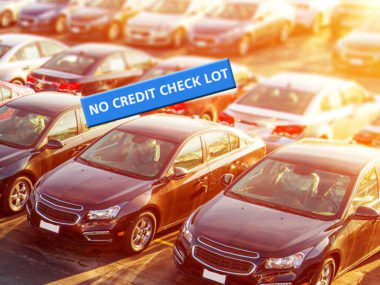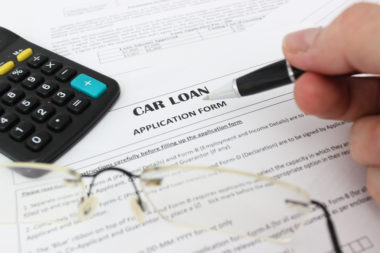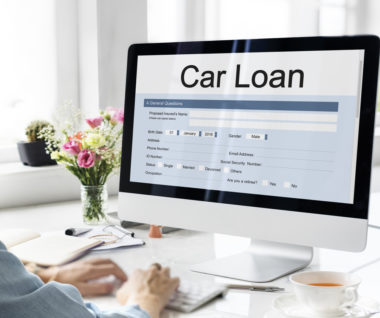When you have less than perfect credit, purchasing a vehicle can be a challenge. Even if you qualify for a traditional car loan from a bank, you’re likely to need a bigger down payment and pay higher interest rates. If finances are already tight, the monthly payments might be just too high for you to make comfortably.
One alternative to buying from a traditional dealership is to work with a “buy here, pay here” dealership. These lots cater to buyers with bad or no credit, financing the purchase of used vehicles themselves.
Often enticing buyers with promises of low (or no) down payments required and guaranteed credit approval, they present the opportunity to buy a newer model used car to buyers who might not otherwise be able to afford one. And while they can ensure that you have reliable transportation and help you rebuild your credit, if they aren’t managed properly, they can make your financial situation much worse than it already is.
Table of Contents
Understanding “No Credit Check” Auto Loans
Many “buy here, pay here” car dealerships promise “no-credit-check” loans. This doesn’t mean you don’t need to prove that you can repay the loan — or even necessarily that they won’t check your credit score at all — but rather that your credit history isn’t the determining factor in whether you’re approved. Your employment status, how much you make, and your down payment (if you’re making one) will all influence how much you can borrow and at what rate.
That’s not the only difference between this type of loan and traditional loans, though.
How Do They Differ From Other Loans?
When you purchase a car from a traditional dealership, and borrow from a bank, the lender determines how much you can borrow and at what interest rate. The bank determines the loan amount based on a variety of factors, but in particular, the value of the car. Simply put, the bank is not going to lend more money than the car is worth.
With a “buy here, pay here” loan, though, the dealership is the lender. Therefore, they can determine how much money to lend you and the interest rate. In many cases, their thresholds are much higher, and they will lend more than what the car is actually worth. This means you could end up borrowing thousands of dollars more than you need, and paying back even more thanks to the exorbitantly high interest rates these dealerships charge.
Interest rates at “buy here, pay here” dealerships are almost always in the double digits, with rates over 20% the norm for people with credit scores in the 300 to 500 range who might not be able to secure financing otherwise. Some states do have laws prohibiting interest rates above certain thresholds (in New York, for example, the maximum interest rate on a car loan is 16%) but many don’t restrict dealerships from charging more.
Loan Terms
The loan terms on “buy here, pay here” loans are also typically much longer than traditional car loans, sometimes extending as long as 84 or 96 months. Since most of these lots sell used vehicles that are already several years old, not only is it likely that you’ll pay much more than the vehicle is worth, you may also be still making payments on a car that’s 10 to 15 years old, and possibly not even roadworthy by the time you finish paying it off.
In addition to higher interest rates, “buy here, pay here” lots may have additional fees or policies that make it more expensive to purchase a vehicle. Some, for example, require buyers to make weekly payments. Others require buyers to make payments in person, which can be inconvenient. And depending on the dealership’s policies, a single late or missed payment could incur major penalties and fees — including repossession.
How to Qualify
Some “buy here, pay here” dealerships advertise that they will lend to anyone, regardless of their credit. If they don’t check your credit, or even if your credit is poor, you still have to prove that you are reliable and have the means to repay the loan. Some of the ways that you can do this include providing documentation, such as:
- Recent pay stubs showing your weekly/monthly earnings;
- Copies of bank statements;
- Copies of utility bills showing a good payment history;
- Rent receipts;
- Mortgage statements.
Depending on the dealership, you might also need to have a co-signer on the loan who will take responsibility for the payments if you default. Some may also require or accept collateral, or real property that secures the loan. Offering collateral means providing the titles to your property, and accepting that the dealership will seize it if you default.
The Benefits and Risks of “Buy Here, Pay Here” Car Financing
“Buy here, pay here” financing does provide a means for individuals who need a car to get one. As with any financial decision, there are pros and cons.
Pros:
- Overlooks bad credit: Even if you have a dismal credit score, you can rely on getting approved by one of these dealerships.
- Fast approval: Getting a loan at one of these dealerships is usually a quick process, which can be helpful when you need a car quickly.
- No co-signer requirements: Although you may need a cosigner for more favorable terms, it’s not typically a requirement.
- Better vehicles: A “buy here, pay here” dealership typically offers newer cars in better condition than what you might find via a private sale.
Cons:
- High interest rates: The interest rates on “buy here, pay here” loans are much higher than typical loans.
- Potentially higher down payment requirements: Although some dealerships may offer low or no down payment options, typically they require bigger down payments upfront.
- Longer terms: Traditional loans typically have 60-month terms, whereas no-credit-check loans may be seven to eight years.
- Large monthly payments: Because of high interest rates, monthly payments may be larger than expected, and you’ll pay more in the long term. Also, weekly payment requirements may make total monthly expenditure more than what you can afford.
Seek Alternatives to “No Credit Check” Car Loans
Because no credit check loans can be a more expensive way to purchase a vehicle, it’s worth exploring alternatives before accepting this type of financing. For example, you might qualify for a traditional loan with a co-signer.
Taking out a different type of loan, such as a personal loan or a car loan designed for people with bad credit, can get you a quality vehicle for a more reasonable rate. In some cases, you might even be able to work with your bank or a local credit union with whom you have a good history to get a loan.
Tips for Assessing “No Credit Check” Car Loan Offers
When considering a vehicle at a “buy here, pay here” dealership, you need to carefully review the terms of any loan offer. Here are some important tips to remember.
Learn to Identify Scams
While many “buy here, pay here” options are legitimate, not all are on the up and up. For example, some dealerships will offer to pay off an existing car loan, no matter how much you owe. However, this usually means that they will add that amount to your loan, ultimately costing you more money.
Another common scam is advertising a specific monthly payment, which might seem lower than what you would pay elsewhere, but is spread out over a longer term.
Before shopping, be aware of these and other potential scams, and if you spot them, walk away. Some of the signs to watch for include:
- Changing terms: If the terms of the purchase change during the purchase process, that’s a big red flag.
- Too good to be true: If the deal seems too good to be true, it probably is. A dealer might offer a car for a penny down, for instance, or have “payment matching” offers, but these “deals” often mean bigger costs down the road.
- No vehicle history: Ask the dealership to supply a vehicle history report, such as a Carfax. These reports cannot be altered by dealers, and will let you know if the vehicle has serious defects (such as damage from a flood).
Compare Interest Rates
Before settling for a “no credit check” loan offer, explore your options. You might be surprised by what you qualify for with a different lender. Applying for loans with multiple lenders in a short period to shop for rates will not affect your credit score in the long term, and ultimately save you money. If you receive different loan offers, use an online calculator to compare the total cost of the financing so you can make the best decision.
Read the Fine Print
Finally, read the fine print on any loan offer before signing anything, and know exactly what you are getting into. The terms and conditions may include clauses that add on extra fees, increase your interest rate, lead to repossessions, or affect your ability to refinance the loan later on. Be clear on the exact payment amounts, when they are due, and how they must be paid.
Image Source: https://depositphotos.com/





